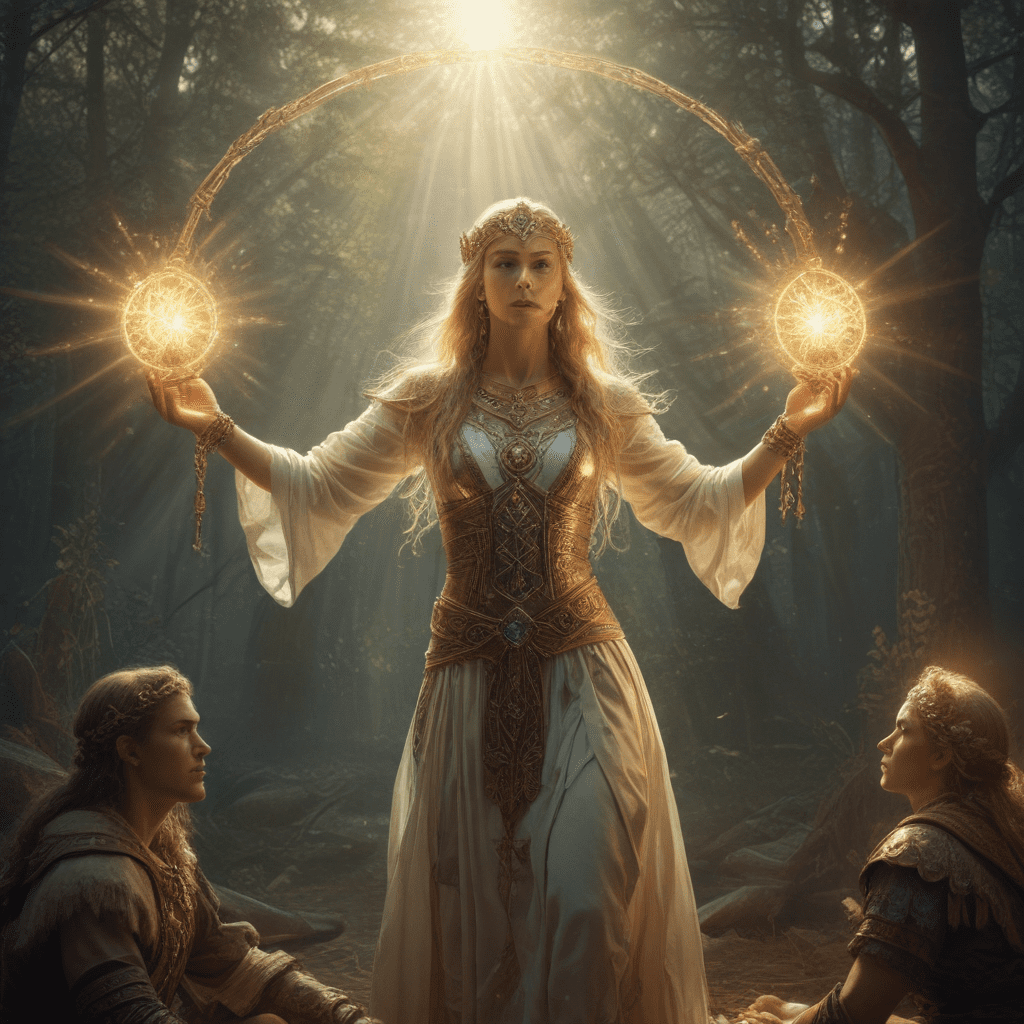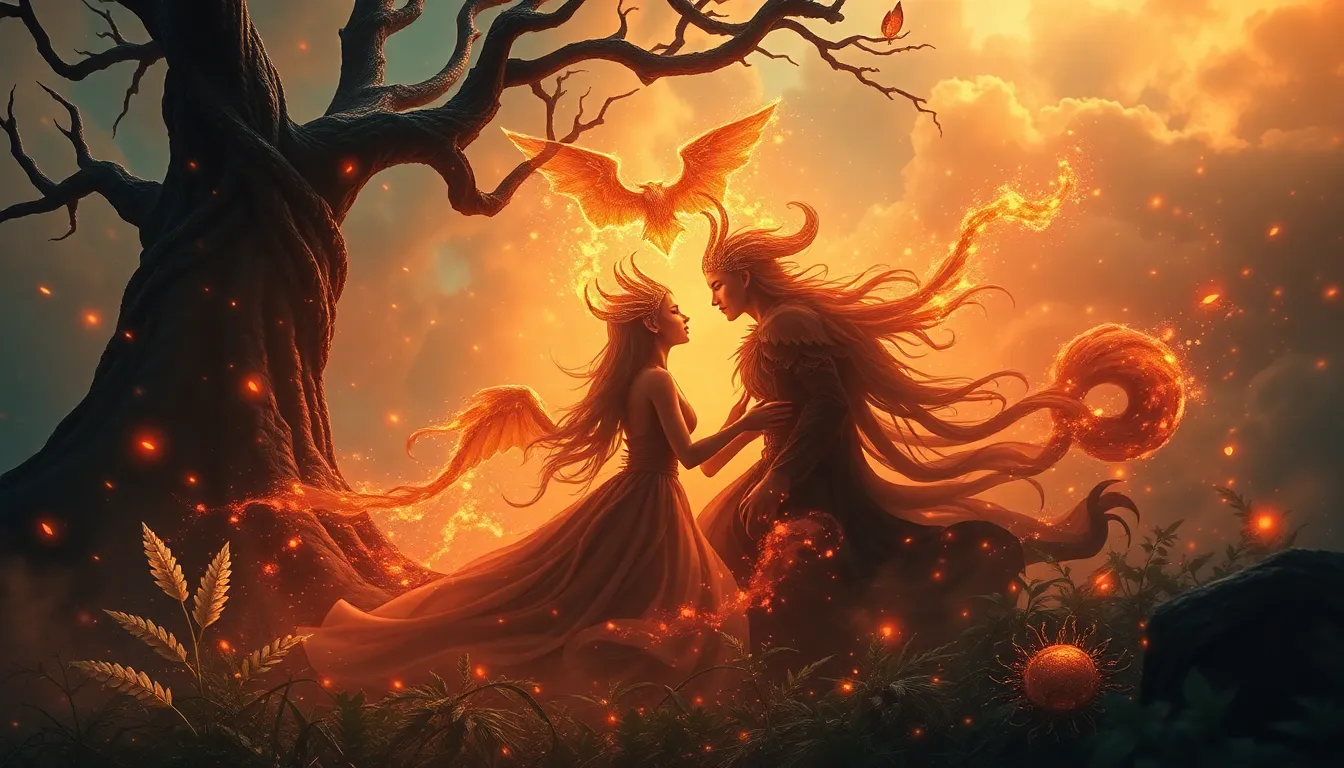The Symbolism of Light in Slavic Mythology
Slavic mythology, a rich tapestry of beliefs, rituals, and folklore, holds light in high regard. It is a potent symbol of life, creation, knowledge, and divine presence. Slavic myths, legends, and tales are replete with references to light, each adding to the multifaceted symbolism associated with it.
Light as a Source of Life and Creation
In Slavic mythology, light is the primordial force that gave birth to the universe. It is believed that the world emerged from chaos and darkness through the power of light. The sun, as the celestial embodiment of light, is revered as the life-giver and sustainer of all existence.
The Sun and Solar Deities
The sun holds a central place in Slavic mythology. It is personified by the god Svarog, the heavenly blacksmith who created the world and humans. Solar deities, such as Dažbog and Khors, are associated with fertility, prosperity, and abundance. The sun's warmth and light are seen as essential for the growth of crops and the well-being of the people.
Light as a Symbol of Knowledge and Enlightenment
Light is also a metaphor for knowledge and enlightenment in Slavic mythology. The god Veles, the protector of wisdom and poetry, is often depicted with shining eyes or surrounded by a halo of light. This symbolizes the illuminating power of knowledge that dispels ignorance and darkness.
Fire as a Purifying and Protective Force
Fire, a manifestation of light, plays a significant role in Slavic mythology. It is believed to have purifying and protective qualities. Bonfires are lit during festivals and rituals to ward off evil spirits, cleanse the participants, and bring good fortune. The hearth fire is considered sacred, representing the warmth and unity of the family.
Light as a Metaphor for Divine Presence
In Slavic mythology, light is a manifestation of the divine. The gods are often depicted as radiant beings, surrounded by a celestial glow. This symbolism reflects the belief that light is a representation of purity, holiness, and the presence of the sacred.
The Role of Light in Slavic Festivals and Rituals
Light plays a central role in Slavic festivals and rituals. The festival of Kupala, celebrated during the summer solstice, is dedicated to the worship of the sun and fertility. Bonfires are lit to symbolize the triumph of light over darkness and to ensure a bountiful harvest.
Light and the Underworld: Dualism of Light and Darkness
While light is generally associated with positive forces, Slavic mythology also acknowledges the existence of darkness. The underworld, ruled by the god Chernobog, is a realm of eternal night. The dualism of light and darkness reflects the belief in the eternal struggle between good and evil.
The Symbolic Significance of Twilight and Dawn
Twilight and dawn hold special significance in Slavic mythology. Twilight is seen as a time of transition and mystery, when the boundaries between the worlds of light and darkness blur. Dawn, on the other hand, symbolizes the rebirth of light and the triumph of good over evil.
Conclusion
In Slavic mythology, light is a multifaceted symbol representing life, creation, knowledge, divine presence, and the eternal struggle between good and evil. Its presence in myths, legends, and rituals highlights the importance of light in the Slavic worldview and its enduring power to inspire and illuminate.
FAQ
What is the most important Slavic god associated with light?
Svarog, the heavenly blacksmith, is the central solar deity in Slavic mythology.
How is fire used in Slavic rituals?
Fire is believed to have purifying and protective qualities. Bonfires are lit during festivals and rituals to ward off evil spirits and bring good fortune.
What does twilight symbolize in Slavic mythology?
Twilight is a time of transition and mystery, when the boundaries between the worlds of light and darkness blur.
How is dawn portrayed in Slavic myths?
Dawn symbolizes the rebirth of light and the triumph of good over evil.
What is the significance of the festival of Kupala?
Kupala is a festival dedicated to the worship of the sun and fertility. Bonfires are lit to ensure a bountiful harvest and to symbolize the triumph of light over darkness.



